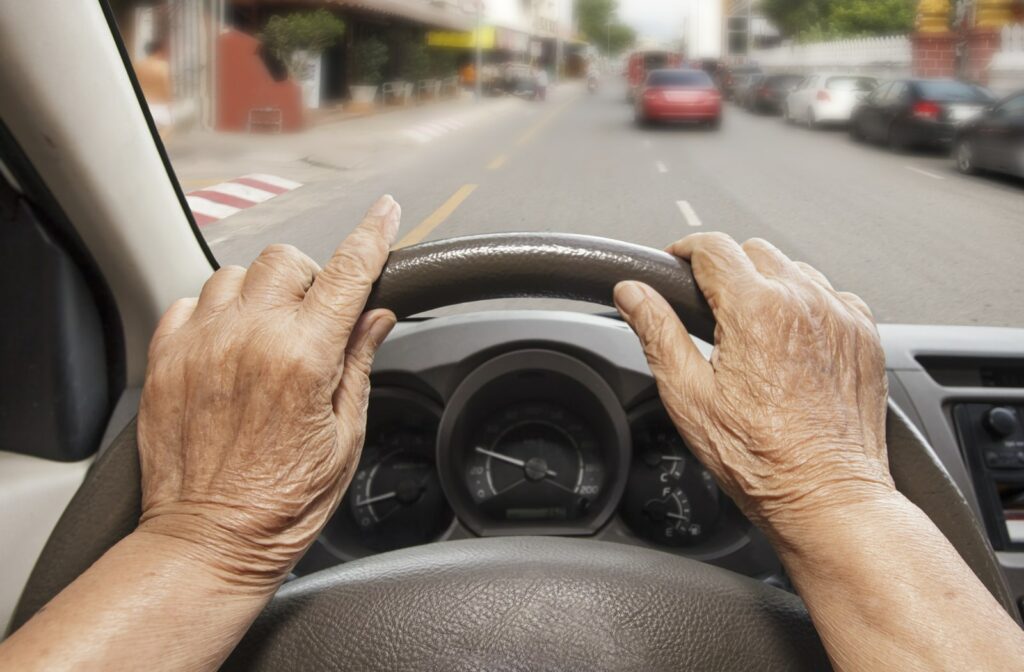As our eyes age, developing cataracts is a normal occurrence. This leads to cataract surgery being a common procedure. Generally, the recovery time is quick after cataract surgery—1 to 3 days on average. In some cases, it can take a couple of weeks.
But how soon can you drive afterward? Unfortunately, there isn’t a set answer. As a general rule, the minimum time before you can drive is around 24 hours. However, this will depend on several factors.
After your surgery, your eye doctor will usually get you to come back the following day to examine your eyes post-surgery. At that point, they will typically instruct you on further care.
What Is a Cataract
To fully understand why you can’t drive right away and why it can take several days to heal, let’s start with what a cataract is.
The lens of your eye is supposed to be clear, but it can grow cloudy over time. You may not even notice it at first, and when you do, it doesn’t always require treatment right away. However, once it becomes too cloudy, the cataract causes your vision to get blurry and affects your day-to-day life.
Cataracts themselves won’t harm your eyes. But when they start to interfere with your everyday life, it’s time for an ophthalmologist to deal with it.
What Happens During Cataract Surgery
You will remain awake for cataract surgery as it’s an outpatient procedure. It’s typically started and finished within an hour. You’ll either receive numbing eye drops or possibly a local anesthetic injection around the eye.
The type of surgery you get determines the size of the incisions the eye doctor has to make. They can often make cuts small enough that don’t require stitches. Once they’ve made the incision, they remove your cloudy lens by various methods.
Once they remove the lens, they replace it with a synthetic one. Different lenses achieve different results. Your ophthalmologist will go over all your options before the procedure.
After the new lens is in, you’ll get stitches if required. Otherwise, you’re all finished, and the doctor can release you to whoever is giving you a ride home.
Cataract Surgery Aftercare
It’s essential to follow all of the ophthalmologist’s aftercare directions. Even though it’s a quick and common procedure doesn’t mean it’s without risks. Most of the risks involved with cataract surgery are treatable, but proper aftercare can usually minimize the risks.
As long as you’re following the eye doctor’s order and taking anything they have prescribed for you, any discomfort should subside within a few days. There are a few potential complications to be aware of and contact the ophthalmologist immediately if they occur:
- Loss of vision
- Persistent discomfort (after using over-the-counter medication)
- Eyelid swelling or increased redness
- Flashing light or new floaters in your field of vision

Driving After Cataract Surgery
The primary reason you can’t drive after undergoing cataract surgery is that the procedure typically leaves your vision a little bit cloudy or blurry. But each person reacts differently to cataract surgery. It comes down to how your body handles it and how quickly it begins healing. Post-surgery, it’s common for vision to be blurry for a few days.
Many people can drive again within 24 hours. However, it’s highly recommended you do not drive until you’ve seen your eye doctor after the surgery. Your ophthalmologist may recommend you wait a few more days before driving.
What To Do When Cataracts Affect Your Life
Cataract surgery is not always necessary, even if you have cataracts. Sometimes glasses or contacts can correct your vision to a certain extent. However, if cataracts are affecting your life, contact us today. The helpful team at Center For Sight is happy to schedule you for a consultation with an ophthalmologist.






